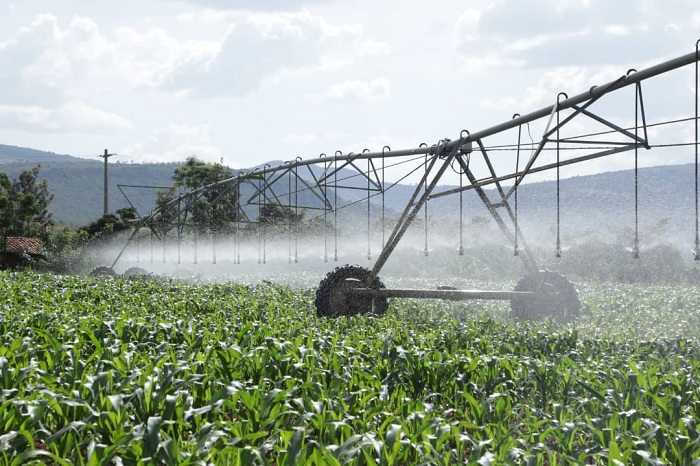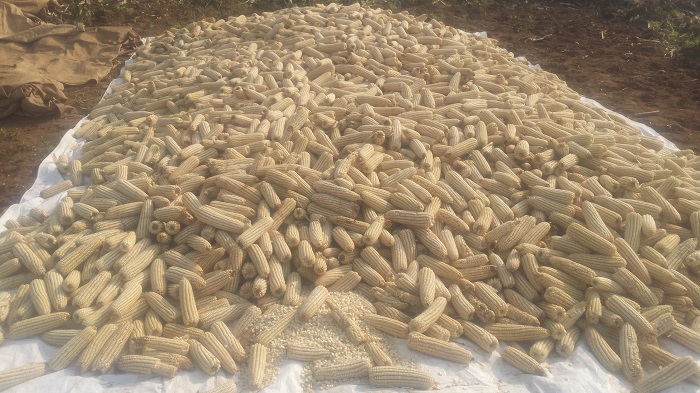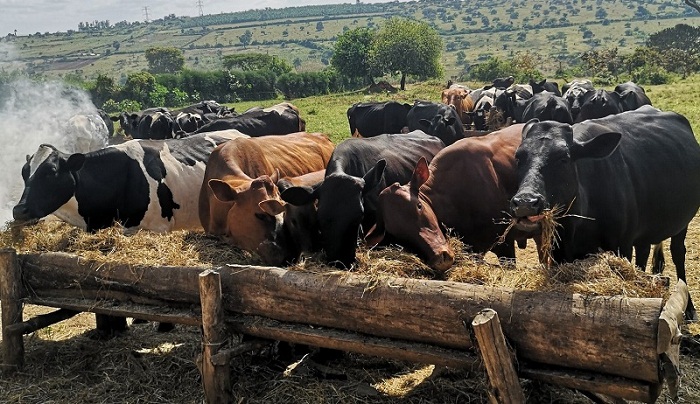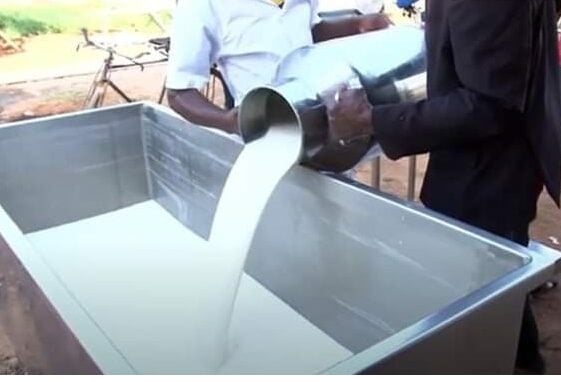
[ad_1]

Irrigation agriculture still exists in the mountains
The Nyagatare District is one of the areas dominated by agriculture and livestock farming due to its size and the new land that was once the Akagera Park.
Its leader, Gasana Stephen, said it was a remote area because most of it was settled after the struggle to liberate the country and stop the genocide against the Tutsi in 1994.
Probably due to good management, people were given various training to produce the land and they soon understood that the production started increasing year by year.
He said that for corn and rice crops, the government has prepared more than 7,000 hectares of land for planting corn, soybeans and seeds, and more than 2,000 hectares of wetlands for planting rice.

Corn production increased
In addition, the government has set up a support system to help farmers increase maize and rice yields from less than one tonne per hectare to five tonnes per hectare, although some farmers have even exceeded that figure.
“We have time to improve the land and do agriculture, not according to the weather but according to planning,” he said. The result is that for maize and rice, we have gone from harvesting in the office to five (5) tons per hectare, although some farmers harvest more than eight tons.
The increase in agricultural and animal husbandry output is mainly achieved through the establishment of cooperatives, which allow members to cooperate with each other, teach each other, and practice modern agriculture and animal husbandry.

Farmers shift from traditional agriculture to modern agriculture
In particular, in the area of husbandry, breeders received different training that enabled them to switch from traditional cattle to more productive modern husbandry.
He said that previously the district’s water consumption did not exceed 20,000 litres per day during the rainy season, but now it has reached more than 100,000 litres per day.
“We used to get 20,000 to 30,000 litres, sometimes none at all, but now on a good day we dry over 100,000 litres and we get 70,000 litres,” he said.
He said this was mainly due to government investment, including tents for drawing water from the river, growing grass, processing machines, building warehouses for storage, etc., with an investment ratio of 60%.
Although farmers are unhappy with milk prices as a result of the investment, milk prices have been rising and the quality of the meat has improved since cows no longer have to travel long distances to find grass and water.
Mirenge Desire, a breeder in Karangazi district, said he had many cows since childhood but they were not very useful compared to the cows now, they graze poorly and suffered from various diseases.

He has been successful in the last 30 years and he appreciates good leadership, especially the President of the Republic, which he puts up with because he understands the livestock they have, so when the land was distributed he was taken away from 75 hectares and was given 15 but he will work well and they will return what he has been using, thanks to the milk of the first modern cows that he helped to breed.
He said: “What I am thankful to the RPF and the President of the Republic is that the state has been patient with us and has given us everything, even during the land commission when I was deprived of 75 hectares of allocated land and only had 15 hectares left.
He continued, “We organized a school trip to Kenya despite the problem we faced of not knowing how to raise modern cows that would fight to death. I was one of the people who delivered the most milk in the area where we lived because my remaining 24 modern cows produced 300 litres a day.”
He has six children who have graduated from college thanks to the milk from his cows, and he encourages his neighbors to raise cows because it is very profitable.
[ad_2]
Source link

